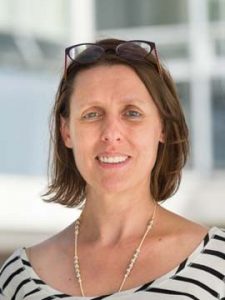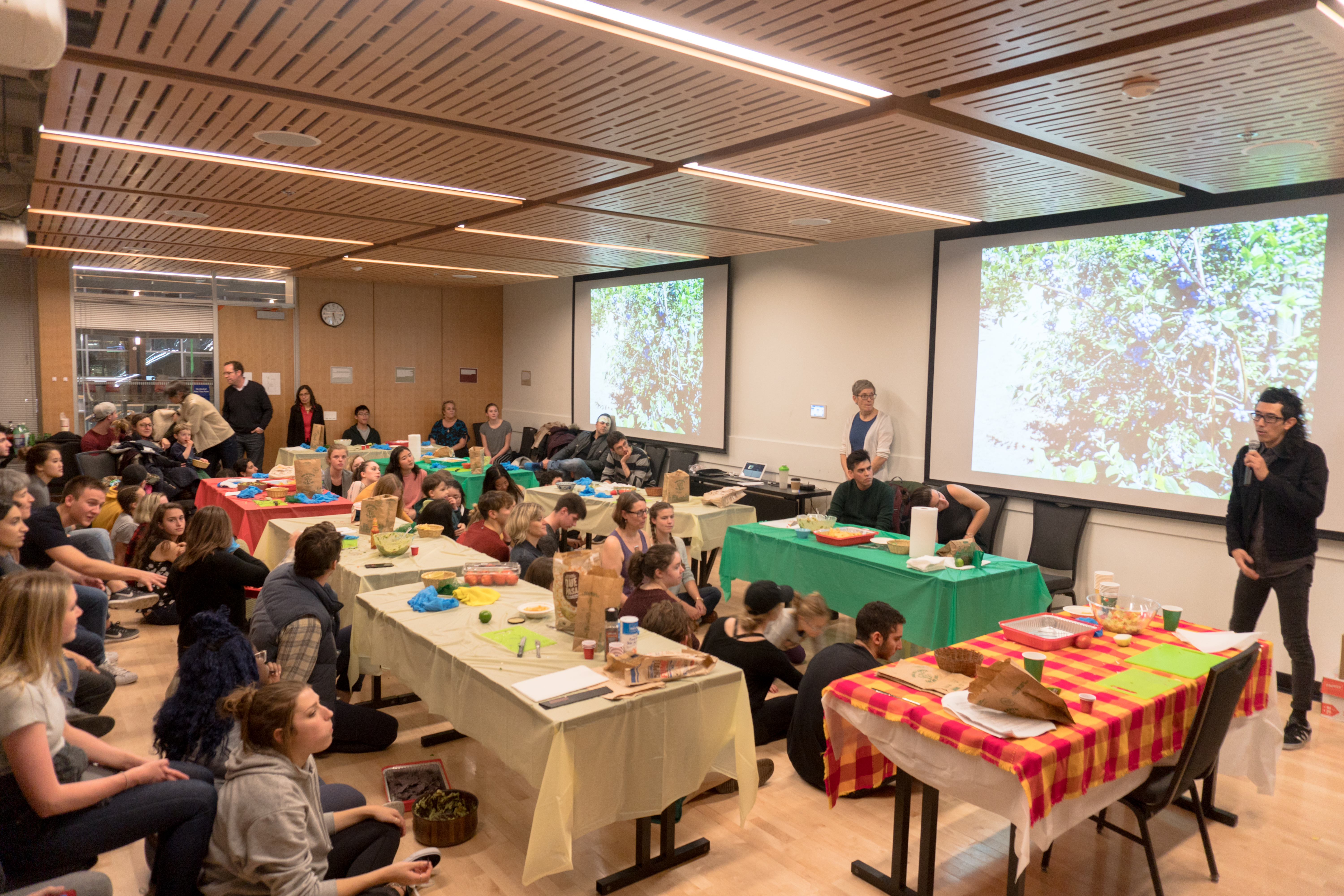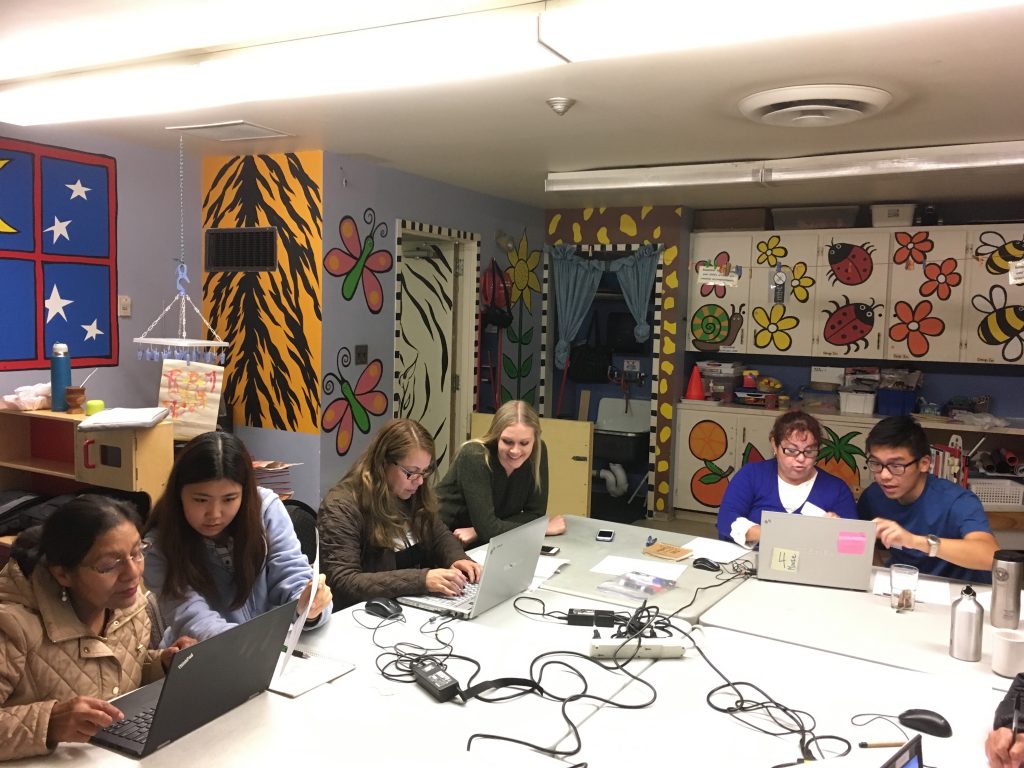
Dr. Maria Carbonetti
Spanish for Community Director
Lecturer of Spanish
Email: maria.carbonetti@ubc.ca | spanish.for.community@ubc.ca
Department of French, Hispanic and Italian Studies (UBC)
Profile: Maria Carbonetti
What is Spanish for Community?
Spanish for Community is a window to the Hispanic community and language immersion, without having to step foot outside of Vancouver.
Spanish for Community is an Experiential and Service Learning initiative that I created in 2010 to help participants strengthen their linguistic and cultural competence through community engaged learning projects with partner organizations in the Lower Mainland and abroad. The projects are tailored to specific courses according to their topic and skill-level, and are related to social justice, diversity and inclusion, human and earth rights, public health and education, and community-based art and culture.
We have many different types of projects. Some of them are on site, so students go to partner organizations and work with members of their community. Other times we invite community partners to our classrooms. I always go by the principle of reciprocity: each project must give students a chance to learn from our partners, and our partners benefit from a service provided by our students.
“Knowledge emerges only through invention and re-invention, through the restless, impatient, continuing, hopeful inquiry human beings pursue in the world, with the world, and with each other” Paulo Freire
These words, are present in my mind and heart and have guided me not only in my academic but in my personal life. But it wasn’t t until 2010 with the first pilot project, when I found a way to bring my teaching practices in the direction of Freire’s thought by creating spaces and by designing projects for community engagement in Spanish language courses. After that year, more opportunities to work with the Hispanic community local and abroad came non stop with small and large projects and different partners organizations. Finally, in 2016, the Spanish for Community (SFC) initiative was born, as a hub for community-based experiential and service-learning projects at the French, Hispanic and Italian Studies department.

SFC designs, coordinates and runs multiple linguistic and culture-based projects for specific courses, cross-course projects and also program-related (Spanish and Latin American Studies) events providing curriculum-based and relevant experiential opportunities for students and instructors, promoting cultural awareness, civic engagement, social justice and connecting the classroom with the community through cooperation and mutual interest.
What are the unique benefits of community engaged learning?
Experiential, community engaged learning allows students to make relevant links between the literature they read and the actual people who live(d) through the events that are described.
Students were utterly mesmerized when we invited immigrant workers from Latin America to speak about their situations of displacement, persecution, and forced immigration. What started as a simple literary text being read in class, and a documentary about immigrant workers in the north of Mexico, had morphed into a complete picture by allowing students to actually meet these individuals in person. The circle was complete. To see how fictional literary works are connected to reality is invaluable.
Spanish for Community has been a bridge, not only between students and partner organizations, but between other courses offered in our Department. It complements, expands, and deepens the subject matter of other courses. It also allows students to practice critical thinking and reflect on the realities of their country of origin, and on how Canada’s policies are directly related to issues happening in other countries. Everything is linked.
It fulfills some of the major points outlined in the UBC Strategic Plan: global and local community engagement and transformative learning.
When it comes to practicing a new language, experiential learning is completely organic and way more unpredictable. It forces students to face their own insecurities and limitations, tap into everything they have learned, and solve problems on the spot. Learning a new language isn’t just an intellectual experience, but an embodied one — to be physically conversing with someone face-to-face in a less artificial setting.
What impact has Spanish for Community made?
Students:
It’s amazing to see students discover the power of a second language and what they can do to impact the world with it.
Every year, students get hooked and continue to volunteer for our partner organizations after the course ends. Some switch career paths and pursue social work or a Spanish major because they see a need for it. Others start portfolios using projects from our translation course to register with the Society of Translators and Interpreters of BC. Some have even told me they landed internships or jobs because of the work we did in Spanish for Community.
Community partners:
In terms of community partnerships, it’s fantastic! It’s a joy to see how materials we produced a long time ago are still being used. Just two days ago, I received an email from a teacher in Guatemala asking for permission to use materials we’d translated for the largest indigenous organization in Central America, which was one of our first projects many years ago!
The same can be said about the manuals we translated for refugees from Latin America to assist with their hearings in Canada, the citizenship and Canadian culture course materials we prepared for neighbourhood houses, and the webpages we created for the Women’s Hospital to inform women about C-sections. These are all still in use.

Computer literacy course for Spanish-speaking immigrants, in partnership with Little Mountain Neighbourhood House.
How are course learning objectives embedded into community projects?
The Spanish language is at the centre of everything we do. Each project, no matter how big or small, will include these four abilities: speaking, listening, reading and writing. Each project is tailored to align with the course level and learning objectives. Here are some examples.
Language:
For my 400-level Translation course, we partnered with an organization from Peru and translated parts of their website, all of which will be published online in two years. It was a splendid opportunity for co-teaching because they got to interact with the Director and the official translators of that organization. They could apply all the theory they were learning to this project and make informed decisions about translation as a mediation practice, in alignment with course objectives and learning outcomes.
For my 200-level Conversational Spanish courses, students were given the opportunity to interact with Hispanic seniors at the local Seniors Centre and hear their stories of immigration. After conversing with the seniors, they wrote journal entries and letters to them.
Culture:
There is an intercultural aspect to these projects as well. For example, students in my 400-level Translation course learned about issues surrounding translation with regards to ethics, power, and privilege within the social, political, and cultural landscape of Peru and the indigenous population we were helping. Students were prompted to reflect on their position as apprentices of translation, and on their privilege as university students in the northern hemisphere in relation to the clients they were serving. We also explored the linguistic implications surrounding gender, such as the use of the Spanish pronominal system and how translation decisions have consequences on this matter.
For students in my 200-level Conversational Spanish courses, listening to the immigration stories of seniors allowed them to encounter, face-to-face, actual survivors of the coup d’état in Chile, persecution in Guatemala, and so on — events they had only read about in literature and history readings. You can imagine how powerful that is!
The 2019 Killam Teaching Prize for excellence in teaching was awarded to Dr. Maria Carbonetti, Lecturer of Spanish at UBC’s Department of French, Hispanic and Italian Studies. Here, she talks about taking risks, making an impact, and the power of community engaged learning to help students apply their skills far beyond the classroom through Spanish for Community.